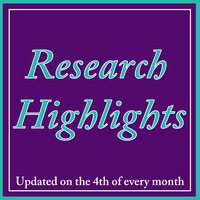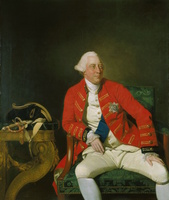 On July 11, 1976, in commemoration of the bicentennial, Queen Elizabeth II and Prince Philip visited the Old State House in Boston. The Queen remarked, "If Paul Revere, Samuel Adams and other patriots could have known that one day a British monarch would stand beneath the balcony of the Old State House from which the Declaration of Independence was first read to the people of Boston and be greeted by the mayor and others in such kind and generous words—I think that they would have been extremely surprised. But perhaps they would also have been pleased..."
On July 11, 1976, in commemoration of the bicentennial, Queen Elizabeth II and Prince Philip visited the Old State House in Boston. The Queen remarked, "If Paul Revere, Samuel Adams and other patriots could have known that one day a British monarch would stand beneath the balcony of the Old State House from which the Declaration of Independence was first read to the people of Boston and be greeted by the mayor and others in such kind and generous words—I think that they would have been extremely surprised. But perhaps they would also have been pleased..."
It is likely that King George III would have been extremely surprised as well. At least about the British monarch visiting and not ruling America. It took news of the Declaration of Independence about five weeks to reach England, with the first newspaper printings of the text published in mid-August. Previous petitions of the Continental Congress had been addressed to the King — specifically, "Most Gracious Sovereign". Though King George III is the subject of the Declaration of Independence, it is not addressed to him. Rather, it is addressed to "a candid world".
So, how did the King learn about the Declaration of Independence? And, how did he respond?

Last month, we examined the Howes' Declaration, an offer of pardon and reconciliation that fell on deaf ears because it was received by the Continental Congress (through the channel of the defunct colonial governors) two weeks after the Declaration of Independence had been published. Admiral Howe arranged a meeting with Benjamin Franklin, John Adams, and Edward Rutledge--a Committee of Congress, though not recognized by Howe as such--for September 11, 1776. What is now known as the Staten Island Peace Conference did not lead to any measures of peace, but the committee's report does give us a reference to the Declaration of Independence. Howe's resource for the Americans' grievances was the Olive Branch Petition, issued on July 8, 1775. The report explains, "That he thought the Petition was a sufficient Basis to confer upon, that it contained Matter, which, with Candour and Discussion might be wrought into a Plan of Permanency... That he had however still flattered himself that upon the Grounds of the Petition, he should be able to do some good. That they themselves had changed the ground since he left England by their Declaration of Independency, which, if it could not be got over, precluded him from all Treaty, as they must know, and he had explicitly said so in his Letter to Dr. Franklin. That he had not, nor did he expect ever to have, Powers to consider the Colonies in the light of Independent States."
On September 19th, the Howes issued a second declaration:
 This copy is from the Chapin Library at Williams College.
This copy is from the Chapin Library at Williams College.
This declaration, which posits that the Declaration of Independence is an "extravagant and inadmissible claim", is the first official British response to American independence.
It took a bit longer for an official response from the subject of the Declaration, King George III. When did the king receive the Declaration of Independence, and what version might he have seen? The Continental Congress never intended for the king to see the engrossed and signed parchment. The legend of John Hancock signing his name large enough for the king to read without his glasses, as we have explained, is hogwash. While on the subject of legends, the story of the King writing in his diary on July 4th that "Nothing of importance happened today." is also unfounded, and is actually adopted from the real diary entry of Louis XVI from July 14, 1789.
If the King saw any version of the Declaration of Independence, it was most likely a broadside. We know that on July 8th, General Howe sent a Dunlap broadside to Lord George Germain, Secretary of State for the Colonies. That same day, Governor Tryon of New York sent a Holt broadside to Germain. These broadsides, as well as several other Dunlaps, reside in the National Archives in the London borough of Richmond.
 One of the National Archives' Dunlap Broadsides
One of the National Archives' Dunlap Broadsides
Without evidence to the contrary, it is most likely that Lord Germain received a Dunlap broadside of the Declaration of Independence around the second week of August, and relayed the news to King George III. Whatever his initial reaction, the king did not officially respond to the Declaration of Independence until over two months later. When Parliament reconvened on October 31st, 1776, the king opened the session with a speech to both houses:
My Lords and Gentlemen,
Nothing could have afforded me so much satisfaction as to have been able to inform you, at the opening of this session, that the troubles, which have so long distracted my colonies in North America, were at an end; and that my unhappy people, recovered from their delusion, had delivered themselves from the oppression of their leaders, and returned to their duty: but so daring and desperate is the spirit of those leaders, whose object has always been dominion and power, that they have now openly renounced all allegiance to the crown, and all political connection with this country; they have rejected, with circumstances of indignity and insult, the means of conciliation held out to them under the authority of our commission; and have presumed to set up their rebellious confederacies for independent states. If their treason be suffered to take root, much mischief must grow from it, to the safety of my loyal colonies, to the commerce of my kingdoms, and indeed to the present system of all Europe. One great advantage, however, will be derived from the object of the rebels being openly avowed, and clearly understood; we shall have unanimity at home, founded in the general conviction of the justice and necessity of our measures.
I am happy to inform you, that, by the blessing of Divine Providence on the good conduct and valour of my officers and forces by sea and land, and on the zeal and bravery of the auxiliary troops in my service, Canada is recovered; and although, from unavoidable delays, the operations at New York could not begin before the month of August, the success in that province has been so important as to give the strongest hopes of the most decisive good consequences: but, notwithstanding this fair prospect, we must, at all events, prepare for another campaign.
I continue to receive assurances of amity from the several courts of Europe; and am using my utmost endeavours to conciliate unhappy differences between two neighbouring powers; and I still hope, that all misunderstandings may be removed, and Europe continue to enjoy the inestimable blessings of peace: I think nevertheless that, in the present situation of affairs, it is expedient that we should be in a respectable state of defence at home.
Gentlemen of the House of Commons,
I will order the estimates for the ensuing year to be laid before you. It is matter of real concern to me, that the important considerations which I have stated to you must necessarily be followed by great expence: I doubt not, however, but that my faithful Commons will readily and chearfully grant me such supplies, as the maintenance of the honour of my crown, the vindication of the just rights of Parliament, and the public welfare, shall be found to require.
My Lords and Gentlemen,
In this arduous contest I can have no other object but to promote the true interest of all my subjects. No people ever enjoyed more happiness, or lived under a milder government, than those now revolted provinces: the improvements in every art, of which they boast, declare it; their numbers, their wealth, their strength by sea and land, which they think sufficient to enable them to make head against the whole power of the mother-country, are irrefragable proofs of it. My desire is to restore to them the blessings of law and liberty, equally enjoyed by every British subject, which they have fatally and desperately exchanged for all the calamities of war, and the arbitrary tyranny of their chiefs.
News of the king's speech spread around the colonies in early February 1777. Since Queen Elizabeth mentioned Samuel Adams, let's conclude with his thought on King George III's response to the Declaration of Independence. In a letter written to Samuel Cooper on February 4th, Adams writes: "The Contest with America, it seems, is now confessd by the British Monarch to be 'arduous.' I think he greatly deceives himself, if he does not expect it will be more so."
By Emily Sneff

